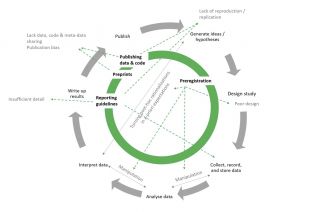
www.buildingsandcities.org/insights/news/built-environment-education.html
VIRTUAL EVENTS: Can Built Environment Education Deliver?

Join us for the launch of the B&C special issue "Education & Training: Mainstreaming Zero Carbon"
Two virtual events will discuss aspects of the special issue and what can be done to accelerate the transformations needed in built environment education. What are some key barriers and opportunities?
Key questions for discussion are likely to include:
• Who should take the lead on creating this change?
• How should professional institutions plan to reframe its higher education training?
• What kinds of changes are needed to the built environment curricula?
• What is your organisation's specific plan for doing so?
The climate emergency requires that the built environment will have to be zero carbon. All new buildings must be zero carbon by 2025 and the existing building stock will require significant retrofitting to be carbon neutral by 2050. A whole-life interdisciplinary approach is essential, which will require mainstreaming decarbonisation skills in all the built environment professions.
Education and training are key for ensuring the professions can achieve this. How will the current higher education curricula adequately meet the challenge and what can be done to positively plan for the future? In November 2020, Buildings & Cities (B&C) published a special issue Education and Training: Mainstreaming Zero Carbon, guest edited by Fionn Stevenson and Alison Kwok. All papers are free to access.
The special issue raised three challenges:
• How can education and training be rapidly changed to ensure the
creation of zero-carbon built environments?
• How can this transition be implemented successfully?
• What positive examples and models can be drawn upon or
adapted?
Two regional virtual events (respectively with The Edge and Carbon Leadership Forum) will use the themes and challenges from the special issue to discuss a rapid change agenda for built environment education. Each will be seeking solutions that are top-down as well as bottom- up and look for a new range of interdependent processes to occur across:
• Central government
• Accreditation bodies and Professional institutes
• Universities
• NGOs
Event 1: Europe & Africa - co-partnered with The Edge
Monday 1st February 2021, 17.00 - 18.30 Greenwich Mean Time


To attend this event please register in advance at: https://www.eventbrite.co.uk/e/zero-carbon-can-uk-built-environment-education-deliver-tickets-135982089089
Chair:Bill Gething (University of the West of England)
Introduction:Fionn Stevenson (University of Sheffield) and Alison Kwok (University of Oregon)
Speakers:Gavin Killip (University of Oxford)
Katy Janda (University College London)
Malini Srivastava (University of Minnesota)
David Gloster (Director of Education, Royal Institute of British Architects)
Lynne Jack (Heriot Watt University & Past President, Chartered Institution of Building Services Engineers)
Q&A
Event 2: North & South America, Asia and Pacific - co-partnered with the Carbon Leadership Forum
Monday 8 February 2021, 9.00-10.00 Pacific Standard Time (PST)


To attend this event please register in advance at: https://washington.zoom.us/meeting/register/tJIpdOmurD0sGdCUb1aZspg9CEVadmCN6R1K
Anthony Hickling (Carbon Leadership Forum)
Introduction:Fionn Stevenson (University of Sheffield) and Alison Kwok (University of Oregon)
Speakers:Gavin Killip (University of Oxford)
Katy Janda (University College London)
Malini Srivastava (University of Minnesota)
Marsha Maytum (Practitioner, Educator, 2019 chair of AIA COTE - American Institute of Architects, Committee on the Environment)
Steph Carlisle (Carbon Leadership Forum and University of Pennsylvania)
Q&A
Latest Peer-Reviewed Journal Content
Acceptability of sufficiency consumption policies by Finnish households
E Nuorivaara & S Ahvenharju
Key factors for revitalising heritage buildings through adaptive reuse
É Savoie, J P Sapinski & A-M Laroche
Cooler streets for a cycleable city: assessing policy alignment
C Tang & J Bush
Understanding the embodied carbon credentials of modern methods of construction
R O'Hegarty, A McCarthy, J O'Hagan, T Thanapornpakornsin, S Raffoul & O Kinnane
The changing typology of urban apartment buildings in Aurinkolahti
S Meriläinen & A Tervo
Embodied climate impacts in urban development: a neighbourhood case study
S Sjökvist, N Francart, M Balouktsi & H Birgisdottir
Environmental effects of urban wind energy harvesting: a review
I Tsionas, M laguno-Munitxa & A Stephan
Office environment and employee differences by company health management certification
S Arata, M Sugiuchi, T Ikaga, Y Shiraishi, T Hayashi, S Ando & S Kawakubo
Spatiotemporal evaluation of embodied carbon in urban residential development
I Talvitie, A Amiri & S Junnila
Energy sufficiency in buildings and cities: current research, future directions [editorial]
M Sahakian, T Fawcett & S Darby
Sufficiency, consumption patterns and limits: a survey of French households
J Bouillet & C Grandclément
Health inequalities and indoor environments: research challenges and priorities [editorial]
M Ucci & A Mavrogianni
Operationalising energy sufficiency for low-carbon built environments in urbanising India
A B Lall & G Sethi
Promoting practices of sufficiency: reprogramming resource-intensive material arrangements
T H Christensen, L K Aagaard, A K Juvik, C Samson & K Gram-Hanssen
Culture change in the UK construction industry: an anthropological perspective
I Tellam
Are people willing to share living space? Household preferences in Finland
E Ruokamo, E Kylkilahti, M Lettenmeier & A Toppinen
Towards urban LCA: examining densification alternatives for a residential neighbourhood
M Moisio, E Salmio, T Kaasalainen, S Huuhka, A Räsänen, J Lahdensivu, M Leppänen & P Kuula
A population-level framework to estimate unequal exposure to indoor heat and air pollution
R Cole, C H Simpson, L Ferguson, P Symonds, J Taylor, C Heaviside, P Murage, H L Macintyre, S Hajat, A Mavrogianni & M Davies
Finnish glazed balconies: residents' experience, wellbeing and use
L Jegard, R Castaño-Rosa, S Kilpeläinen & S Pelsmakers
Modelling Nigerian residential dwellings: bottom-up approach and scenario analysis
C C Nwagwu, S Akin & E G Hertwich
Mapping municipal land policies: applications of flexible zoning for densification
V Götze, J-D Gerber & M Jehling
Energy sufficiency and recognition justice: a study of household consumption
A Guilbert
Linking housing, socio-demographic, environmental and mental health data at scale
P Symonds, C H Simpson, G Petrou, L Ferguson, A Mavrogianni & M Davies
Measuring health inequities due to housing characteristics
K Govertsen & M Kane
Provide or prevent? Exploring sufficiency imaginaries within Danish systems of provision
L K Aagaard & T H Christensen
Imagining sufficiency through collective changes as satisfiers
O Moynat & M Sahakian
US urban land-use reform: a strategy for energy sufficiency
Z M Subin, J Lombardi, R Muralidharan, J Korn, J Malik, T Pullen, M Wei & T Hong
Mapping supply chains for energy retrofit
F Wade & Y Han
Operationalising building-related energy sufficiency measures in SMEs
I Fouiteh, J D Cabrera Santelices, A Susini & M K Patel
Promoting neighbourhood sharing: infrastructures of convenience and community
A Huber, H Heinrichs & M Jaeger-Erben
New insights into thermal comfort sufficiency in dwellings
G van Moeseke, D de Grave, A Anciaux, J Sobczak & G Wallenborn
'Rightsize': a housing design game for spatial and energy sufficiency
P Graham, P Nourian, E Warwick & M Gath-Morad
Implementing housing policies for a sufficient lifestyle
M Bagheri, L Roth, L Siebke, C Rohde & H-J Linke
The jobs of climate adaptation
T Denham, L Rickards & O Ajulo
Structural barriers to sufficiency: the contribution of research on elites
M Koch, K Emilsson, J Lee & H Johansson
Disrupting the imaginaries of urban action to deliver just adaptation [editorial]
V Castán-Broto, M Olazabal & G Ziervogel
Nature for resilience reconfigured: global- to-local translation of frames in Africa
K Rochell, H Bulkeley & H Runhaar
How hegemonic discourses of sustainability influence urban climate action
V Castán Broto, L Westman & P Huang
Fabric first: is it still the right approach?
N Eyre, T Fawcett, M Topouzi, G Killip, T Oreszczyn, K Jenkinson & J Rosenow
Social value of the built environment [editorial]
F Samuel & K Watson
Understanding demolition [editorial]
S Huuhka
Data politics in the built environment [editorial]
A Karvonen & T Hargreaves



Latest Commentaries
Decolonising Cities: The Role of Street Naming
During colonialisation, street names were drawn from historical and societal contexts of the colonisers. Street nomenclature deployed by colonial administrators has a role in legitimising historical narratives and decentring local languages, cultures and heritage. Buyana Kareem examines street renaming as an important element of decolonisation.
Integrating Nature into Cities
Increasing vegetation and green and blue spaces in cities can support both climate change mitigation and adaptation goals, while also enhancing biodiversity and ecological health. Maibritt Pedersen Zari (Auckland University of Technology) explains why nature-based solutions (NbS) must be a vital part of urban planning and design.